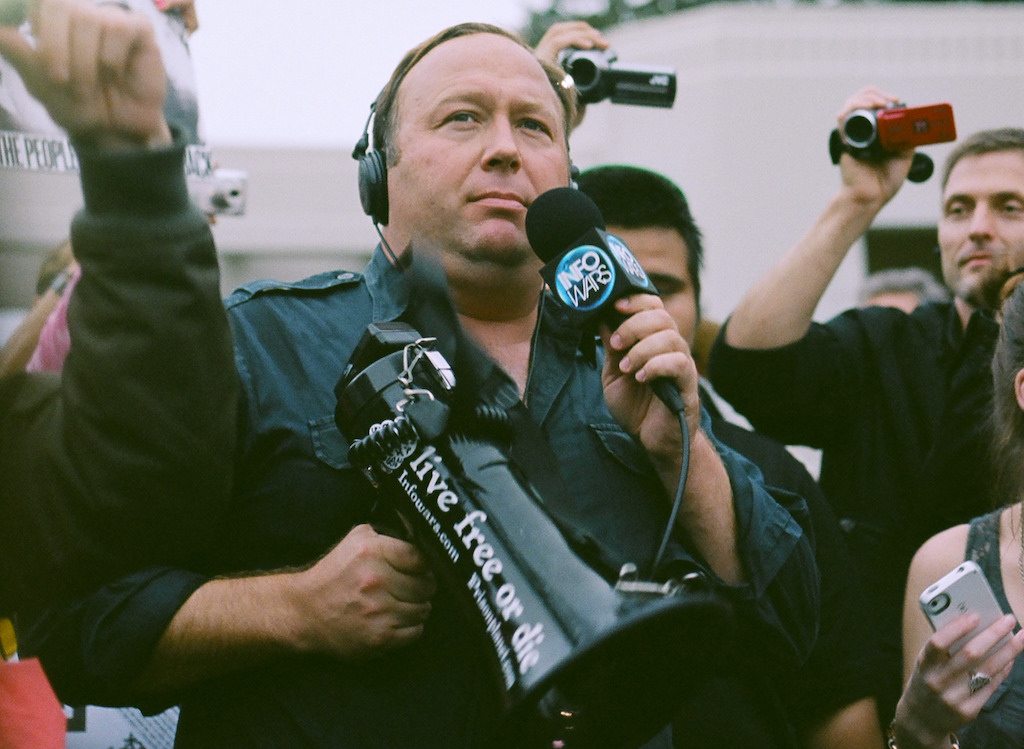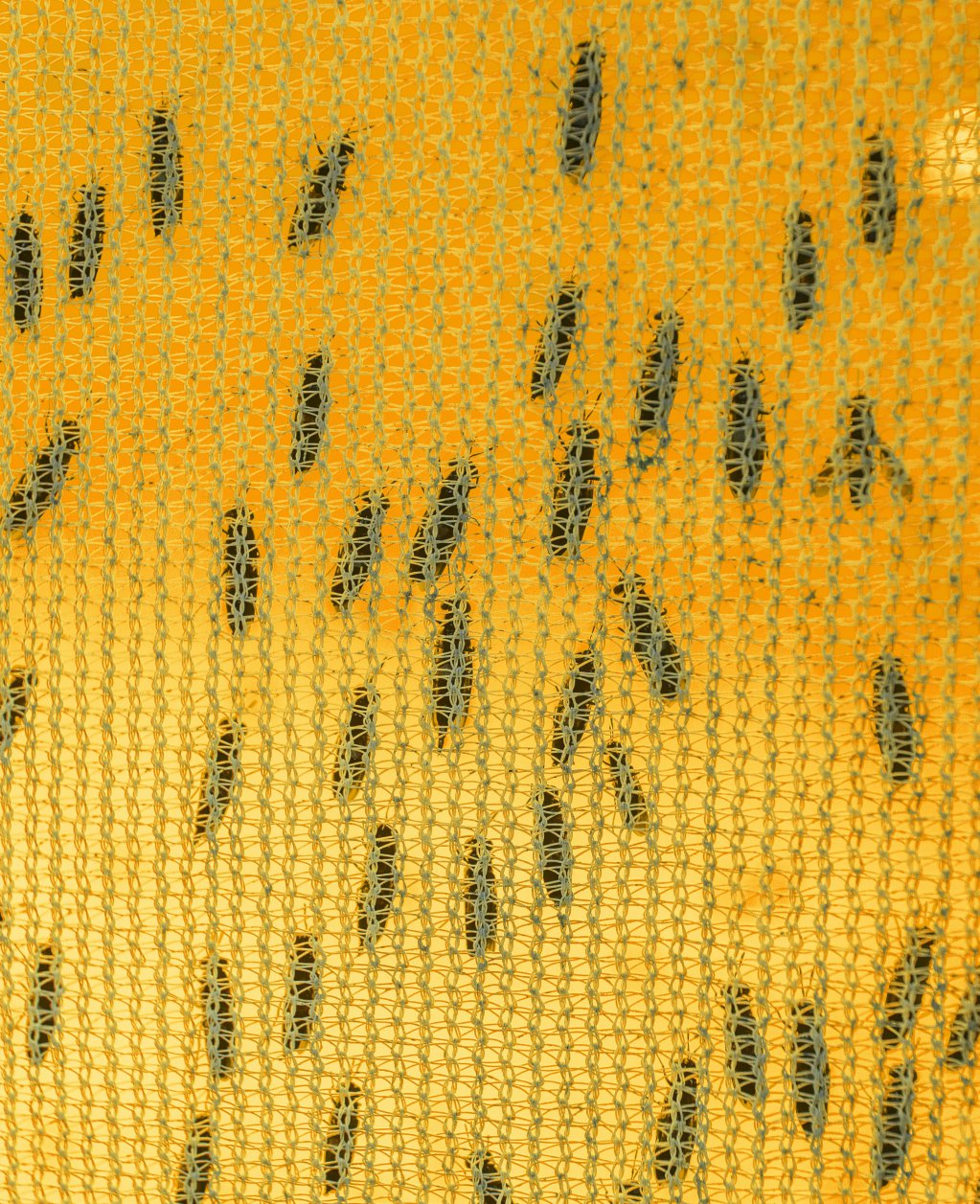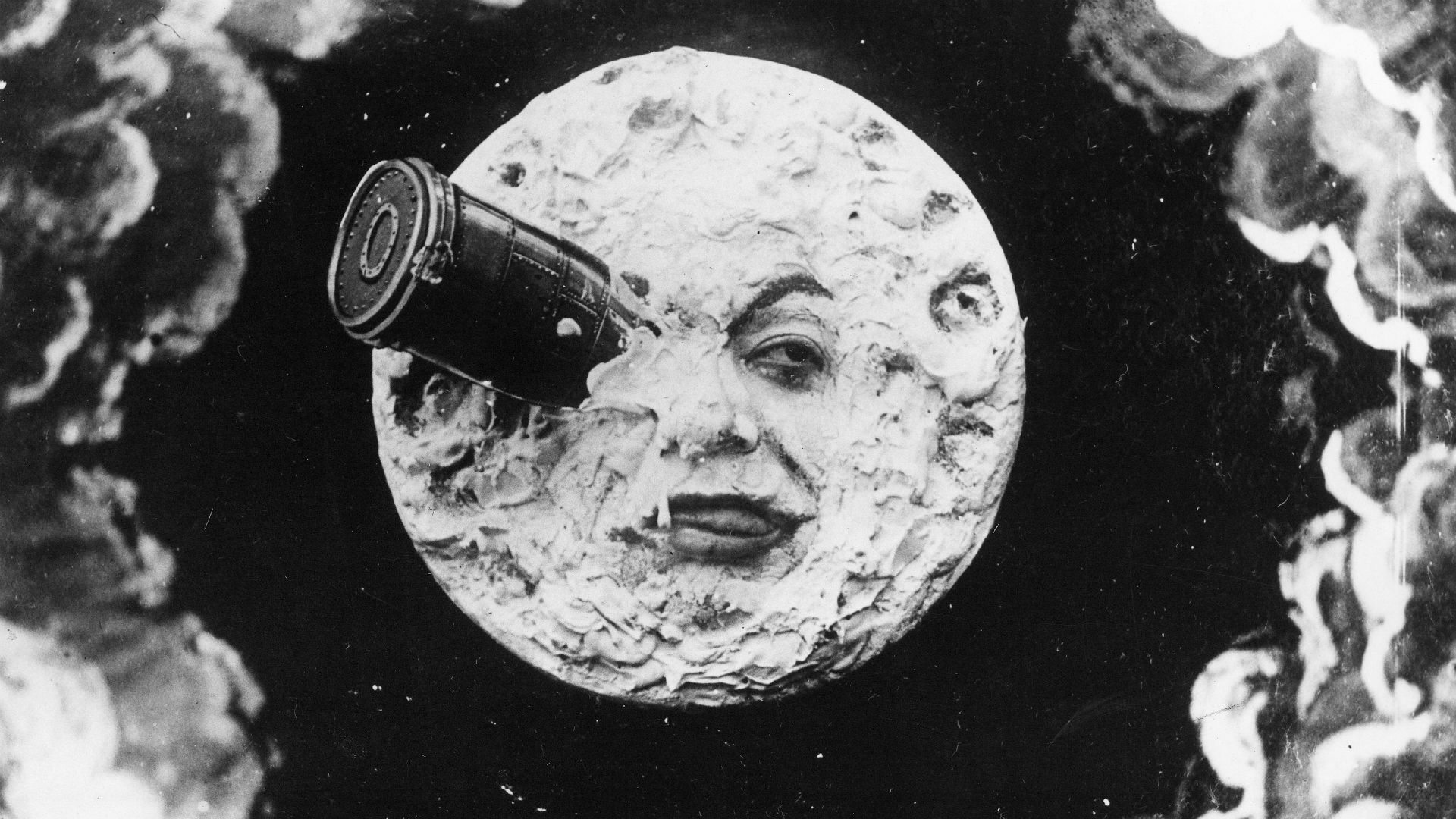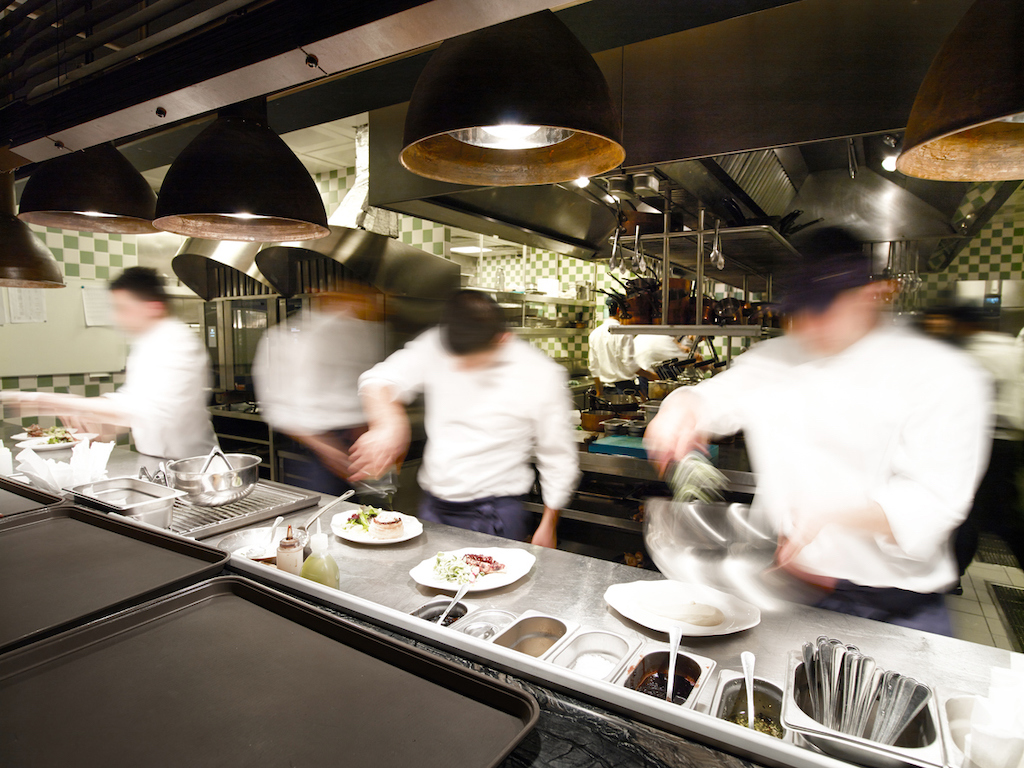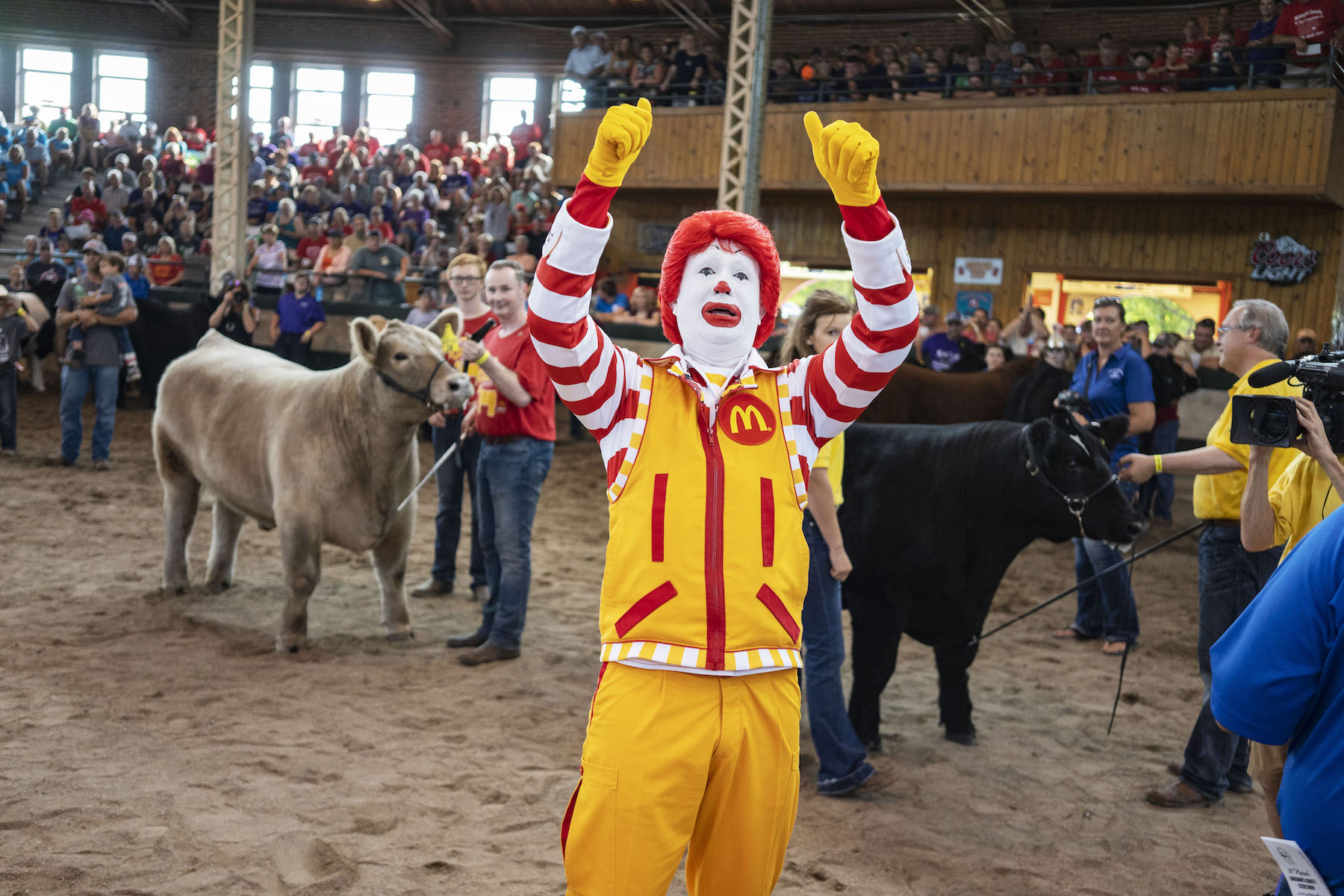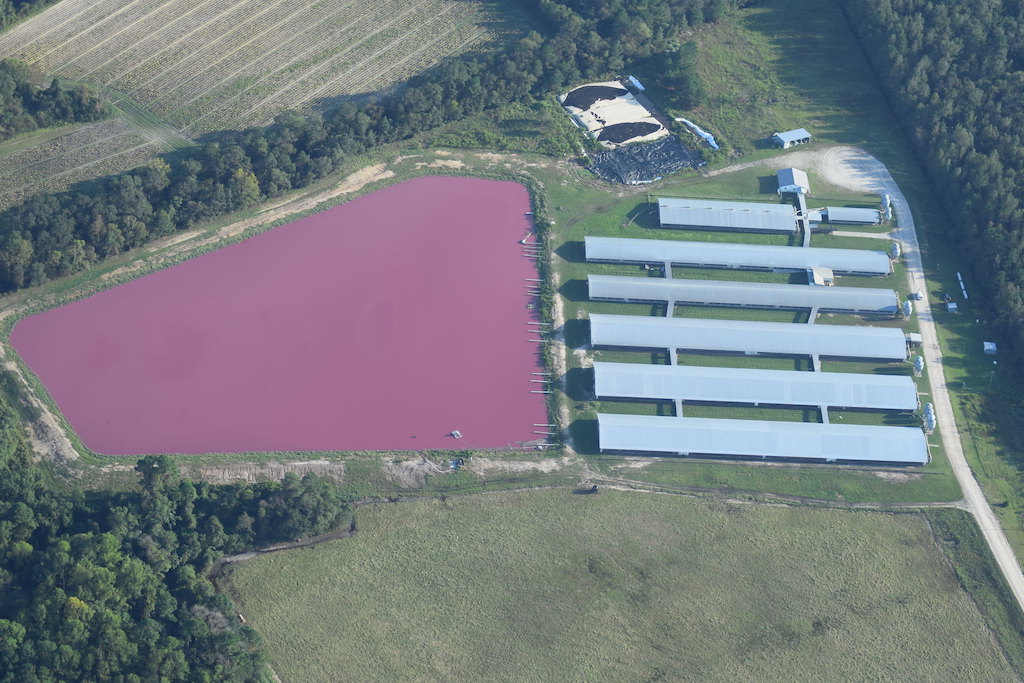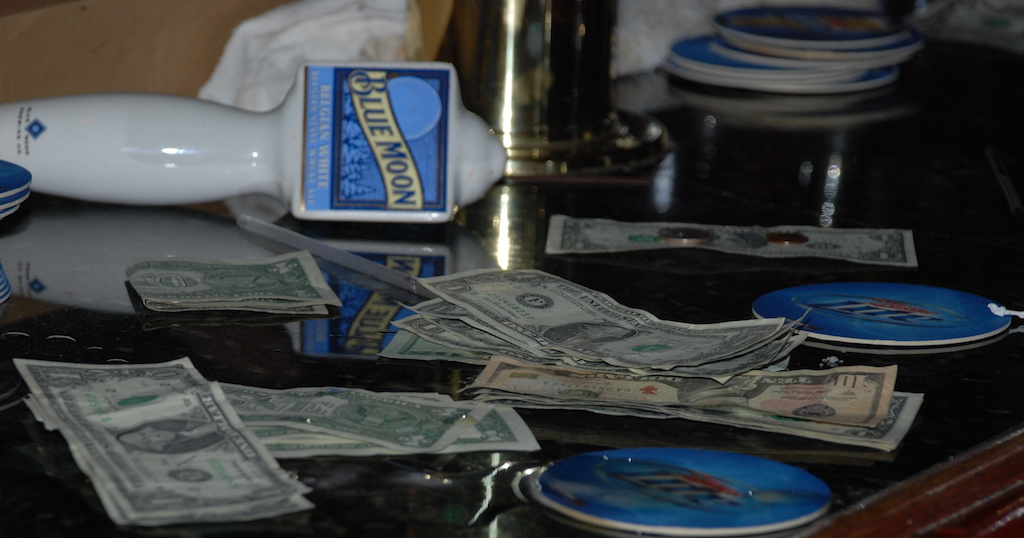‘Gurt on his face. Noted far-right conspiracy theorist Alex Jones is not one to say sorry for much of anything. But this week, he made an exception by issuing an apology to Chobani, its employees, and the people of Twin Falls, Idaho.
The New York Times reports Jones retracted videos about the company in which he alleged the Twin Falls Chobani factory, where a number of refugees are employed, was connected to a 2016 sexual assault of a child and a rise in tuberculosis. Jones’ website InfoWars’ in its headlines called the Chobani employees “migrant rapists.”
Chobani filed a lawsuit against Jones for his remarks in late April, alleging that he had slandered the company and its founder, Hamdi Ulukaya, a Turkish immigrant of Kurdish descent. A company representative told the Times the case has been resolved.
It’s easy to feel gleeful in response to Jones’ apology: A win for protecting a vulnerable population and a knock against what liberal media outlets would call “fake news” (or what we call “lies”). But, like other too-little-too-late retractions from Jones, the damage is likely already done (see Pizzagate, which led to an actual shooting).
According to its media kit, InfoWars reaches 6.5 million people every month. The company claims its readers are affluent (almost 40 percent of them make over $100,000 per year) and overwhelmingly male (a whopping 72 percent). Perhaps most tellingly, its marketing materials call these “active enthusiasts” “highly engaged.”
Back to food. Remember that Ted Genoways article we pointed out on Tuesday—the one where the FBI foiled a plot to murder an entire refugee community in a Kansas meatpacking town? Genoways reported the three men, who called themselves “Crusaders,” planned to attack a facility that fit a narrative eerily similar to the false one Jones propagated, involving a refugee population in the food industry plagued by rumors of rape and tuberculosis. Had the “Crusaders” succeeded, they would’ve killed hundreds.
As Genoways reported, the lawyer for “Crusader” Patrick Stein mounted a “fake news” defense in court. He said the proliferation of media conspiracy theories convinced the “Crusaders” that the United States was in a state of emergency. Those sentiments were buttressed by the pre-election political climate. The Republican Party mailed out fliers in Kansas that said Democratic candidates were “moving terrorists to Kansas.” Then-candidate Donald J. Trump in August famously called refugees “the great Trojan horse of all time.” With news sources like that, the attorney’s logic went, who could blame Stein for hatching a plan to “deal with that mosque and those people,” as his lawyer put it?
The “fake news” defense didn’t hold up in court, though. The judge denied Stein’s bail.
